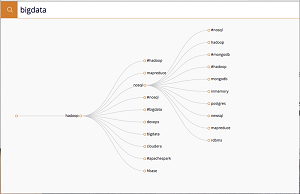News
DataSift Democratizes Social Machine Learning
- By David Ramel
- July 17, 2015
DataSift Inc., a "human data intelligence" company, yesterday launched a tool that lets developers provide simplified, social-focused machine learning (ML) to users throughout an organization.
VEDO Intent "significantly simplifies ML, helping developers to place it into the hands of people across the business," the company said in a news release yesterday. "For the first time, organizations will be able to harness the full potential of social data and take action based on the intent of their audiences thanks to our advanced ML capabilities that surface intent at scale."
The goal is to provide users with business insights stemming from advanced social analytics of "human-created data" such as social networks, blogs, news articles and discussions. With a little initial instruction and guidance, the tool learns how to automatically categorize such human data for structured analysis.
"Using an approach known as Active Learning, VEDO Intent learns as posts are manually classified into categories such as rant, rave, purchase intent or churn," the company said in a blog post yesterday. "VEDO Intent then dynamically builds a ML-based model to first suggest, and then fully automate, the real-time classification of millions of posts to surface insights that previously would have been hidden."
 [Click on image for larger view.]
Using the Keyword Relationship Model (source: DataSift Inc.)
[Click on image for larger view.]
Using the Keyword Relationship Model (source: DataSift Inc.)
Such classification is typically done manually by humans today, the company said, but that approach doesn't scale and isn't cost-effective. Programmatically automating this manual task is the only way to reliably and economically enable users to glean deeper insights from social data, the company said.
"With this launch, we're democratizing access to ML for the masses," the company said. "VEDO Intent builds on VEDO, the programmable intelligence engine built into DataSift's data processing platform. It allows people across the business, including marketers, customer relations managers and more, to easily build advanced machine learning-based classifiers for their organization without the need of a PhD."
DataSift described a five-step process to using the tool:
- Choose what you want to find out.
- Define your categories and their features.
- Show VEDO Intent how you categorize a sample content set.
- VEDO Intent will copy you and ask for help where it is not sure.
- Review VEDO Intent’s efforts and iterate.
Doing that, the company said, will help users in all departments answer questions such as:
- Which products are people considering buying?
- How satisfied are my customers? Are they thinking of leaving me?
- How important is this campaign message?
- Are my target markets interested in my marketing program?
- Which parts of my service prompt the best reviews?
The company also released a preview keyword relationship model, its first statistical foundation model released as part of a FORUM initiative to advance innovation in the social media ML space. It leverages deep learning algorithms to let developers or analysts explore related hashtags, keywords and topics, drawing on the experience gained from the analysis of more than 2 billion data items. "One simple, practical use for this is to help guide marketers to the keywords and hashtags that they should be using in their analysis or within their campaigns," the company said.
You can play around with an online, interactive Foundation Model Explorer to get an idea of how it works, typing in keywords to generate an interactive schematic of related terms and hashtags.
Pricing details can be found here.
About the Author
David Ramel is an editor and writer at Converge 360.